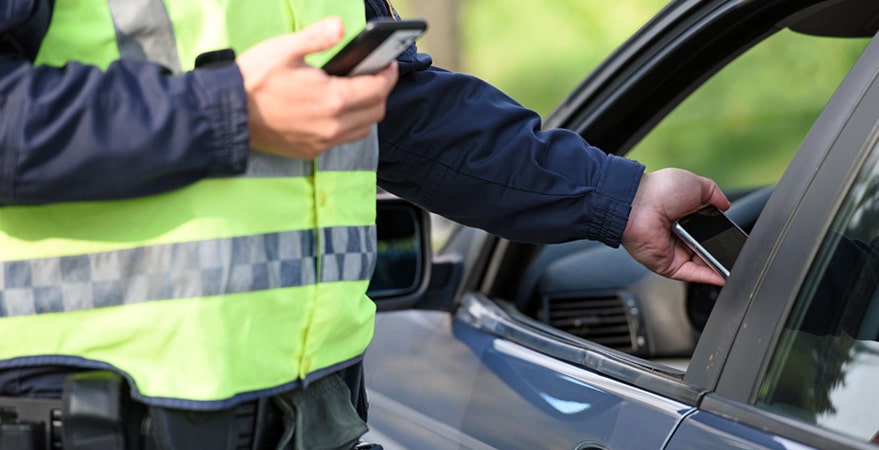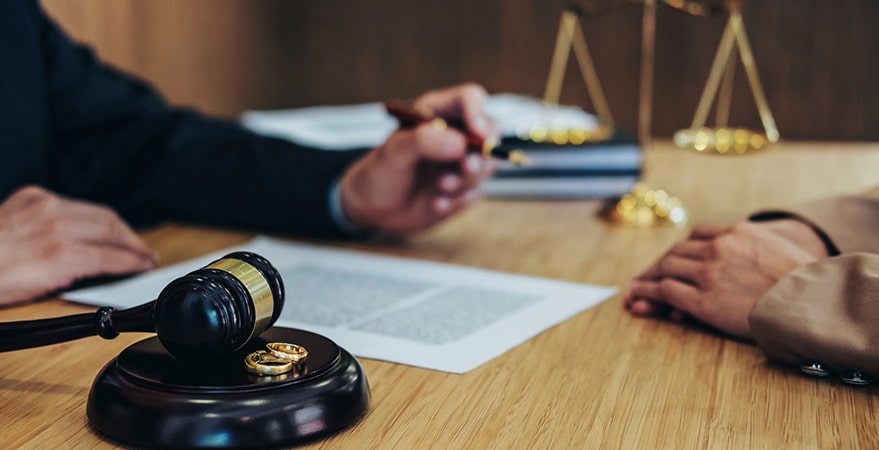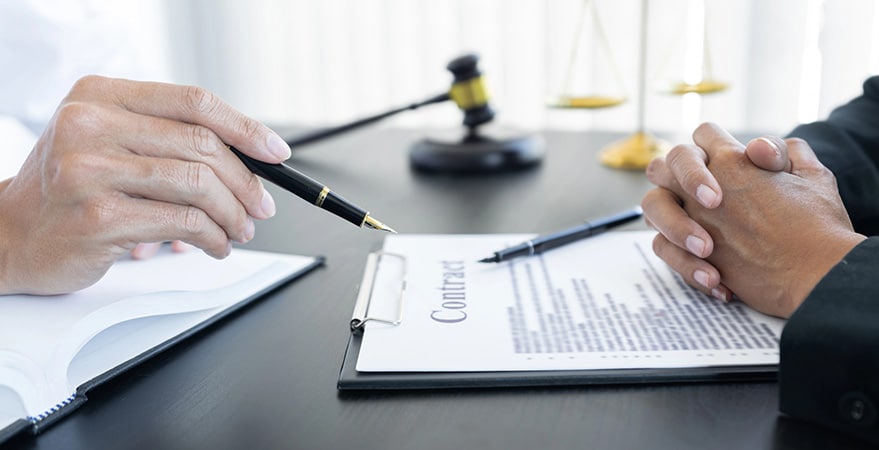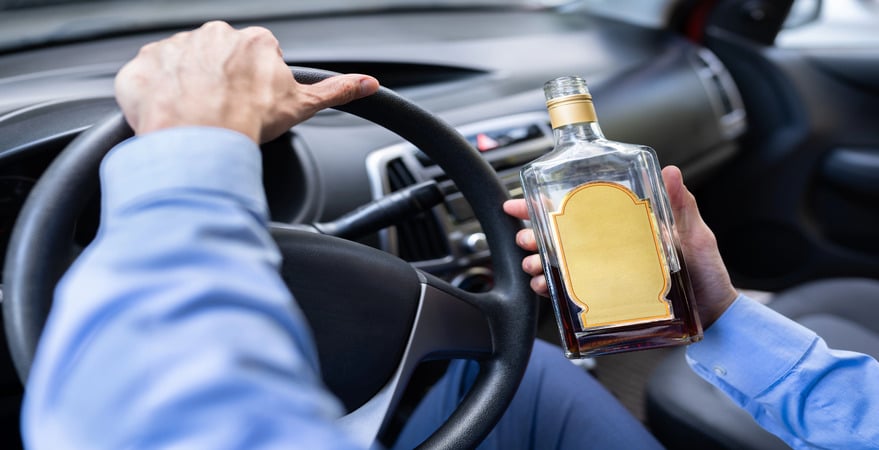Ways to Secure Your Cell Phone from the Police in Colorado
Many people in Colorado are concerned about protecting the privacy of their smartphone data. While the Fourth Amendment safeguards against unreasonable searches, interacting with law enforcement can still be complicated. Police must follow legal rules to access your phone, but there are practical steps you can take to keep your information secure. Understanding how to protect your device is essential for maintaining privacy and minimizing risks during any encounter with authorities.
Understanding Your Fourth Amendment Rights in Colorado
The Fourth Amendment of the U.S. Constitution protects people in Colorado from unfair searches of their cell phones by the police.
Police need a warrant to look through your phone unless it’s an emergency.
Colorado courts say cell phones have private info that needs protection. Police must show a good reason (probable cause) and get a judge’s OK before checking things like photos and messages on your phone.
They might take your phone to stop evidence from being erased while they get a warrant.
In Colorado, you can say no if police ask to search your phone without a warrant. You can tell them you don’t agree and ask to talk to a lawyer first.
Setting Up a Strong Device Passcode
Creating a strong passcode for your phone is important to keep it safe from people who shouldn’t have access. Use at least six numbers instead of four, because this makes it harder for others to guess. Don’t use easy-to-guess numbers like your birthday or address. Try to use a mix of numbers and letters if your phone lets you.
If your phone can use things like fingerprint or face unlock, use them too, but keep a strong passcode as a backup. Change your passcode often to keep it safe.
Make sure your phone locks itself after you don’t use it for a short time. Turning on encryption on your phone also helps keep your information private and safe.
Enabling Biometric Security Features
Modern smartphones have strong security features that use your body to protect your phone. These features include using your fingerprint, face, or eyes to unlock your device.
But be careful. Police might find it easier to make you unlock your phone with your fingerprint or face than with a password. Courts have different rules about this.
For better safety, turn off these features if you think you might need to talk to the police. Then, your phone will only unlock with your password.
Most phones let you turn off these body-based locks quickly. You can do this by pressing certain buttons or using emergency features. This way, only your password can open your phone.
Implementing Two-Factor Authentication
Beyond biometric security, two-factor authentication (2FA) is a strong way to protect mobile devices. It requires two types of checks before you can get into your device or accounts.
To use 2FA well, turn it on for your Apple ID or Google Account. These accounts hold the key to your device’s data. Once 2FA is on, you’ll need your usual password and a second check to get into your phone or important apps.
This second check could be a code sent to you by text, email, or from an app like Google Authenticator or Authy. It’s better to use apps like these instead of text messages because they are safer from hackers.
Also, keep backup codes in a safe place. This way, if your second check method doesn’t work, you can still get in.
Encrypting Your Phone’s Data
One of the most effective ways to secure your cell phone from unauthorized access is by encrypting its data. Encryption transforms the information on your device into a code that cannot be read without the correct password, PIN, or biometric authentication. In Colorado, as in other states, police may seek access to your phone during an investigation, but encryption provides a strong layer of protection, making it significantly harder for anyone to access your personal messages, photos, and other sensitive data without your consent.
Most modern smartphones come with built-in encryption options. For example, iPhones automatically encrypt data when a passcode is set, while Android devices offer full-disk encryption through settings. Enabling encryption ensures that even if your phone is seized, the data remains protected unless the proper authentication is provided.
It’s important to note that encryption does not make your phone completely immune to legal orders. Courts can compel a person to unlock a device in some cases, but encryption adds a critical layer of security, helping protect privacy and reduce the risk of unauthorized data access during investigations.
Using Secure Messaging Apps
Another important way to safeguard your privacy on your cell phone is by using secure messaging apps. These apps encrypt messages end-to-end, meaning that only you and the intended recipient can read the content. Even if someone intercepts the communication, the messages remain unreadable without the encryption keys.
Popular secure messaging apps, such as Signal, WhatsApp, and Telegram (with secret chats enabled), offer features like disappearing messages, encrypted group chats, and verification of contacts to ensure conversations remain private. Using these apps can protect sensitive communications, including personal information, business matters, or legal discussions, from unauthorized access.
While secure messaging provides strong privacy protection, it’s important to remember that no system is completely foolproof. Combining encrypted apps with other phone security measures, such as strong passwords and device encryption, offers the best defense against unauthorized access or surveillance.
Managing App Permissions and Privacy Settings
Managing app permissions on your smartphone is important for keeping your information private. Here are some simple steps you can take:
- Turn off location tracking for apps that don’t need it. For apps that do, set it to only work when you’re using them.
- Check which apps can use your camera and microphone. Only let the apps that really need them have access.
- Stop apps from updating in the background. This helps prevent them from collecting information when you’re not using them.
- Look at your privacy settings in social media apps. Turn off things like sharing your exact location or tagging you in pictures automatically.
Doing these things helps keep your data safe while still letting your phone do what you need.
Backing Up Data to Secure Cloud Storage
To keep your phone data safe, it’s important to back it up to a secure cloud service. This helps protect your information if you lose your phone or if it’s taken.
Pick a cloud service that uses end-to-end encryption, which means only you can see your data. Some good ones are ProtonDrive, Tresorit, and pCloud.
Set up automatic backups so your important stuff, like files, photos, messages, and contacts, is always saved.
Use two-factor authentication and strong, unique passwords for your cloud accounts to keep them safe.
Also, make sure you read the cloud service’s privacy policy to understand how they handle your data and see how they deal with law enforcement requests.
Consider where their servers are located and the laws of that place.
Creating Emergency Response Plans
An emergency plan for keeping phone data safe has three important parts: planned actions, trusted people, and safe ways to communicate. This plan helps people act fast and smart if the police want to look at their phones.
- Use secret words or signals with trusted friends or family to start actions like erasing data or calling a lawyer.
- Keep a list of emergency contacts, like lawyers or tech experts, in a safe place away from your phone.
- Make simple steps for different situations, like traffic stops or if the police have a search warrant.
- Set up automatic actions if something happens, like not checking in at a certain time.
Practice the plan often, update it, and make sure everyone involved knows what to do.
Installing Privacy-Focused Apps
Installing privacy-focused apps is another effective way to protect your cell phone from unauthorized access. These apps are specifically designed to limit the collection of personal data, prevent tracking, and secure sensitive information. Examples include secure browsers like Brave or Firefox Focus, password managers like LastPass or Bitwarden, and VPN apps that encrypt your internet traffic to protect your online activity from surveillance.
Privacy-focused apps can also help safeguard communications, block ads and trackers, and protect location data from being shared without your consent. When used in combination with built-in security features like device encryption and strong passwords, these apps provide an extra layer of defense, making it more difficult for unauthorized parties, including law enforcement, to access your personal information without proper legal authority.
Regularly updating these apps and reviewing their permissions is essential to maintain maximum security and ensure your phone stays protected against evolving digital threats.
Securing Your Phone During Protests
When you go to protests, it’s important to keep your phone safe from spying and to protect your private info.
- Turn on airplane mode. This stops people from tracking you but still lets you take photos and videos.
- Use special messaging apps that keep your chats safe and can make messages disappear after a while.
- Don’t use things like fingerprint or face unlock. Instead, use a tricky password with letters and numbers.
- Save important stuff somewhere else and remove any private info or social media apps before you head out.
These steps can help keep your personal info safe and let you record what happens and talk to others securely.
Documenting Police Encounters Safely
When you see the police in public, you have the right to record what they do. But you need to be careful to stay safe and keep your video safe, too.
Stand at least 15 feet away when you record. Use apps that save your video to the cloud. This way, if someone takes or deletes your phone, your video is still safe. Say “I am recording” so everyone knows. Keep your hands where people can see them and move slowly.
To be extra safe, lock your phone screen, use apps that keep your messages private, and turn on emergency alerts. Record in landscape mode to see more in the video, and add timestamps to your video for details.
If the police stop you, say you do not agree to a search, but stay calm and follow legal orders.
Knowing When to Power Off Your Device
Powering off your phone can keep it safe from people trying to get in without permission. When your phone is off, all its data is locked, and you need a password to turn it back on. This makes it harder for anyone to break in.
- If you hear about police activity nearby
- If you see or are part of a police encounter
- If you’re going through a security check
- If you’re at a protest or event where people might watch you
Turning off your phone stops fingerprint or face unlock and makes you use a password. This stops people from tracking you or taking your data.
It also keeps all your important stuff safe on your phone.
Responding to Warrant Requests
When police want to look at your cell phone, they need a warrant. A warrant is a paper from a judge that says it’s okay to search your things. It must say what they can search and why. Always check the paper to make sure it’s real and see what it allows.
If you get a warrant, read it and see what it says you have to do. You can stay quiet and call a lawyer to help you understand it.
Even if the police have a warrant, they can’t make you give them your phone password or use your fingerprint to unlock it. This is because of your right not to say things that can get you in trouble, which is part of the Fifth Amendment.
It’s smart to write down the officers’ names and badge numbers. If you can, take a picture of the warrant. This can help if you need to talk to a lawyer later.
Setting Up Remote Wipe Capabilities
Remote wipe features help keep your phone’s information safe if it gets lost or stolen. Most smartphones today let you erase everything on them from afar. To use this, you must turn on certain settings and stay connected to the internet.
- Turn on Find My iPhone (for iOS) or Find My Device (for Android) to track and wipe your phone if needed.
- Set up extra security steps to stop others from erasing your phone without permission.
- Use cloud backups to save important data so you can get it back after wiping your phone.
- Keep location tracking on to know where your phone is and its status.
Make sure you know how to use these remote wipe tools and check often to see that they work right.
Protecting Location Data Privacy
To keep your location data private, follow these steps:
- Turn off Location Services: Only use it when you need directions or for apps that really need to know where you are.
- Disable Wi-Fi and Bluetooth Scanning: These features track nearby networks even if you think they’re turned off.
- Check App Permissions: Go to your phone’s settings and see which apps can access your location. Limit this to the ones that truly need it.
- Use a VPN: This tool can hide your IP address and where you are, adding an extra layer of privacy.
Doing these things helps protect your privacy without stopping your phone from working.
It’s smart to regularly check your settings to make sure your privacy is safe.
Securing Social Media Accounts
Social media sites can make your personal information easy for law enforcement to find. Here are some ways to keep your accounts safe:
| Security Tool | Why It’s Important | How to Use It |
| Two-Factor Auth | Stops others from getting into your account | Turn it on in settings |
| Privacy Settings | Decide who sees your stuff | Share posts with “Friends Only” |
| Location Tags | Keeps your location private | Turn off location features |
To keep your social media secure, delete old posts, check who is on your friend list, and look at what you’ve been tagged in. Be careful with photos, check-ins, and status updates because they can show where you are or who you are with. It’s a good idea to have one account for work and another one for personal use. Using fake names for private accounts can also help keep your information safe.
Legal Rights at Security Checkpoints
Understanding your rights at security checkpoints helps you protect your privacy while following the rules. If you live in Colorado, here’s what you need to know about phone searches and security checks:
- Permission Needed: Police need your permission or a legal order, like a warrant, to look through your phone.
- Focused Checks: Security checks should be fair and only check what’s necessary.
- Say No: You can say no to searches that aren’t required.
- Talk to a Lawyer: You can ask to speak with a lawyer before you agree to a search.
- Take Notes: You can write down badge numbers and what happens during the check.
When at a checkpoint, you can choose not to talk and politely say no to letting someone look at your phone.
If police want to see your phone, you can ask them to show you a warrant. Being polite helps, but knowing these rights can keep your privacy safe without making things worse.
Maintaining Digital Security Habits
To keep your phone safe, it’s important to have good habits. These habits help protect your personal information from being stolen.
- Change your passwords often. Use a mix of letters, numbers, and symbols. Don’t use easy-to-guess passwords like your name or birthday.
- Clear your browser history and delete temporary files after using the internet. This helps keep your information private.
- Check your text messages, emails, and downloaded files. Delete old ones that might have private information.
- Look at the apps on your phone. Make sure they aren’t asking for too much access, like your location or contacts, if they don’t need it.
These habits work with security settings to keep your phone and personal data safe.
Working With Legal Repres\entatives
When you have issues with phone privacy, it’s important to talk to a lawyer. They can help you understand the rules about digital privacy and make sure your rights are safe when dealing with the police.
| Legal Help Type | What They Do for You |
| Privacy Lawyer | Knows all about your digital rights |
| Criminal Defense Lawyer | Protects you during police checks |
| Civil Rights Lawyer | Knows about your basic rights and what to do if they’re broken |
A good lawyer can look at how you keep your phone safe, help you write down what happens if you talk to the police, and be there if you need to go to court. They can also tell you if the police have the right to ask for your phone or its data. Knowing these things helps you keep your phone and its information private.
Share This Story, Choose Your Platform!
Table of Contents
- Understanding Your Fourth Amendment Rights in Colorado
- Setting Up a Strong Device Passcode
- Enabling Biometric Security Features
- Implementing Two-Factor Authentication
- Encrypting Your Phone’s Data
- Using Secure Messaging Apps
- Managing App Permissions and Privacy Settings
- Backing Up Data to Secure Cloud Storage
- Creating Emergency Response Plans
- Installing Privacy-Focused Apps
- Securing Your Phone During Protests
- Documenting Police Encounters Safely
- Knowing When to Power Off Your Device
- Responding to Warrant Requests
- Setting Up Remote Wipe Capabilities
- Protecting Location Data Privacy
- Securing Social Media Accounts
- Legal Rights at Security Checkpoints
- Maintaining Digital Security Habits
- Working With Legal Representatives
Firstly, I would like to thank DUI Law Firm Denver for successfully representing me in my Adams County DUI case. The level of experience, scientific knowledge, dedication (I had both Emilio and Trevor representing me), and preparedness made all the difference during my trial. I highly recommend them. They are the BEST!
Related Reading
What Does It Mean to Be Arraigned? An arraignment is the first official court appearance after someone is charged with a crime. At this hearing, the judge explains the charges, reviews the defendant’s rights, and asks for a plea, typically guilty, not guilty, or no contest. While the proceeding itself is often brief, it marks [...]
How Does The Court Know If You Violated a No-Contact Order? Courts in Colorado often rely on no-contact order monitoring systems to ensure individuals follow the restrictions set by the judge. These systems use technology such as GPS ankle bracelets, electronic monitoring tools, and specialized software that can immediately alert law enforcement if a violation [...]
Can I Drive After a Colorado DUI Arrest Until My Court Date? If you are arrested for driving under the influence (DUI) in Colorado, you’ll get a temporary permit that lets you drive for 7 days. You need to request a DMV hearing within the first 7 days to maintain your driving privileges until your [...]















